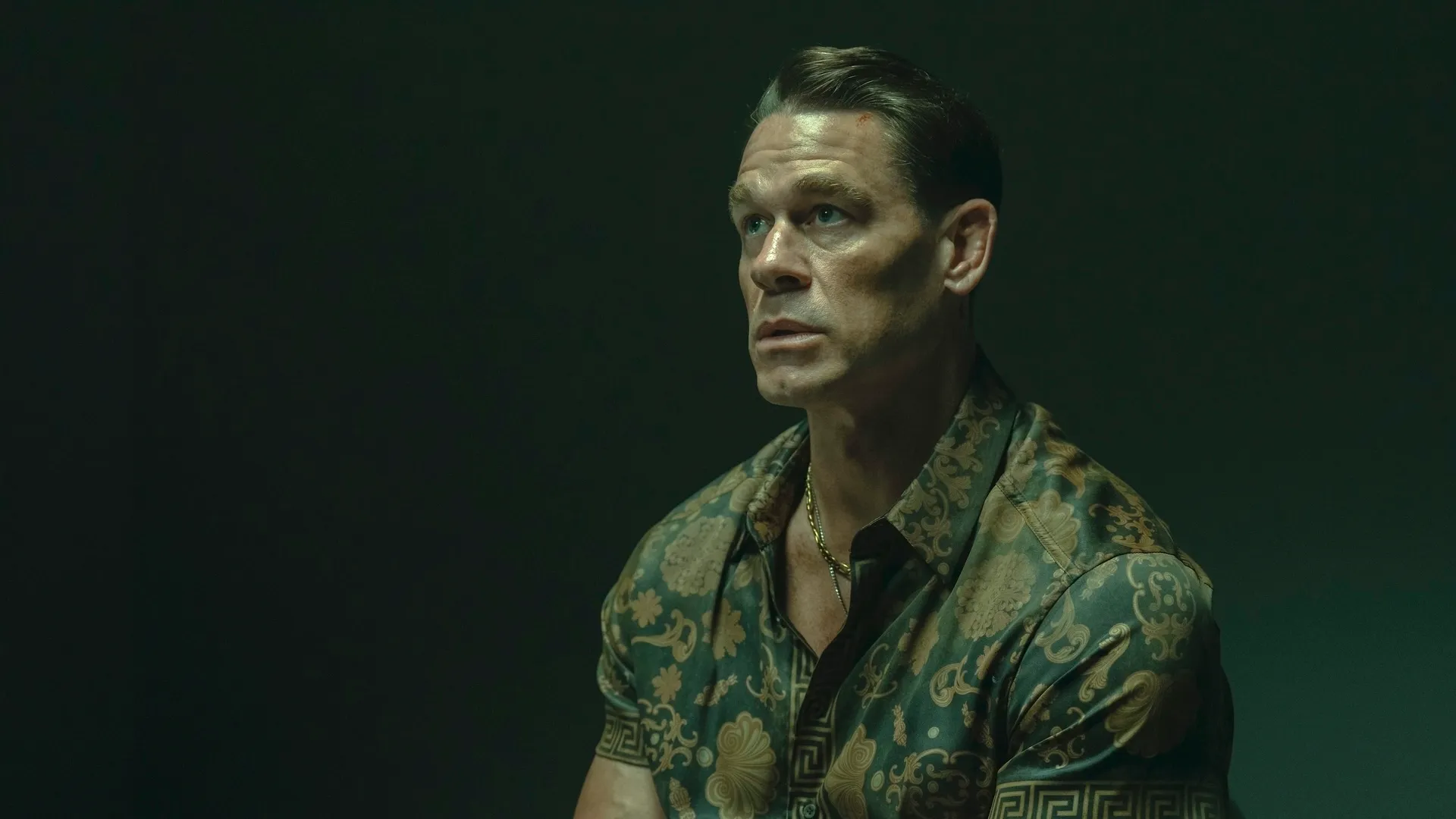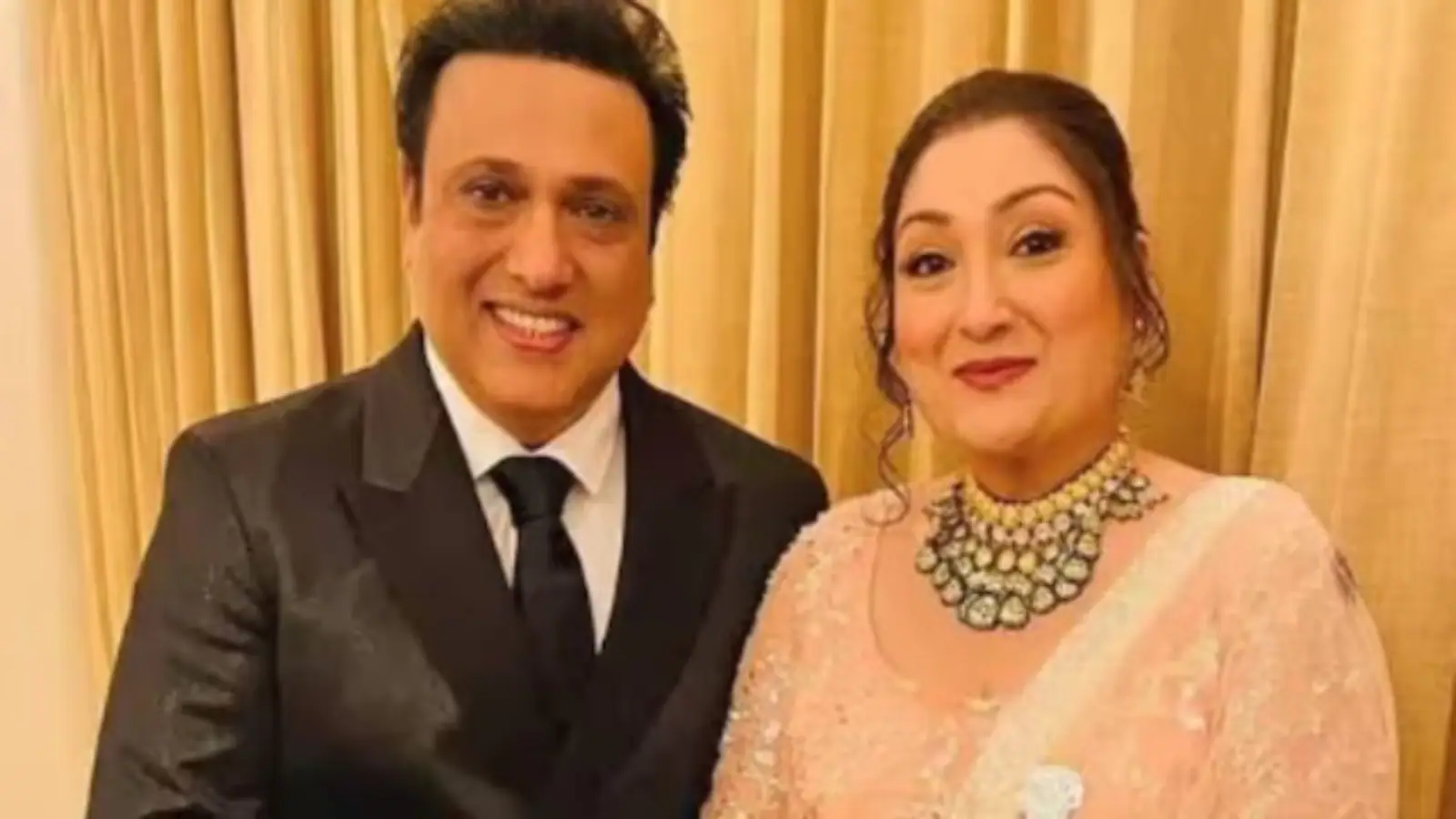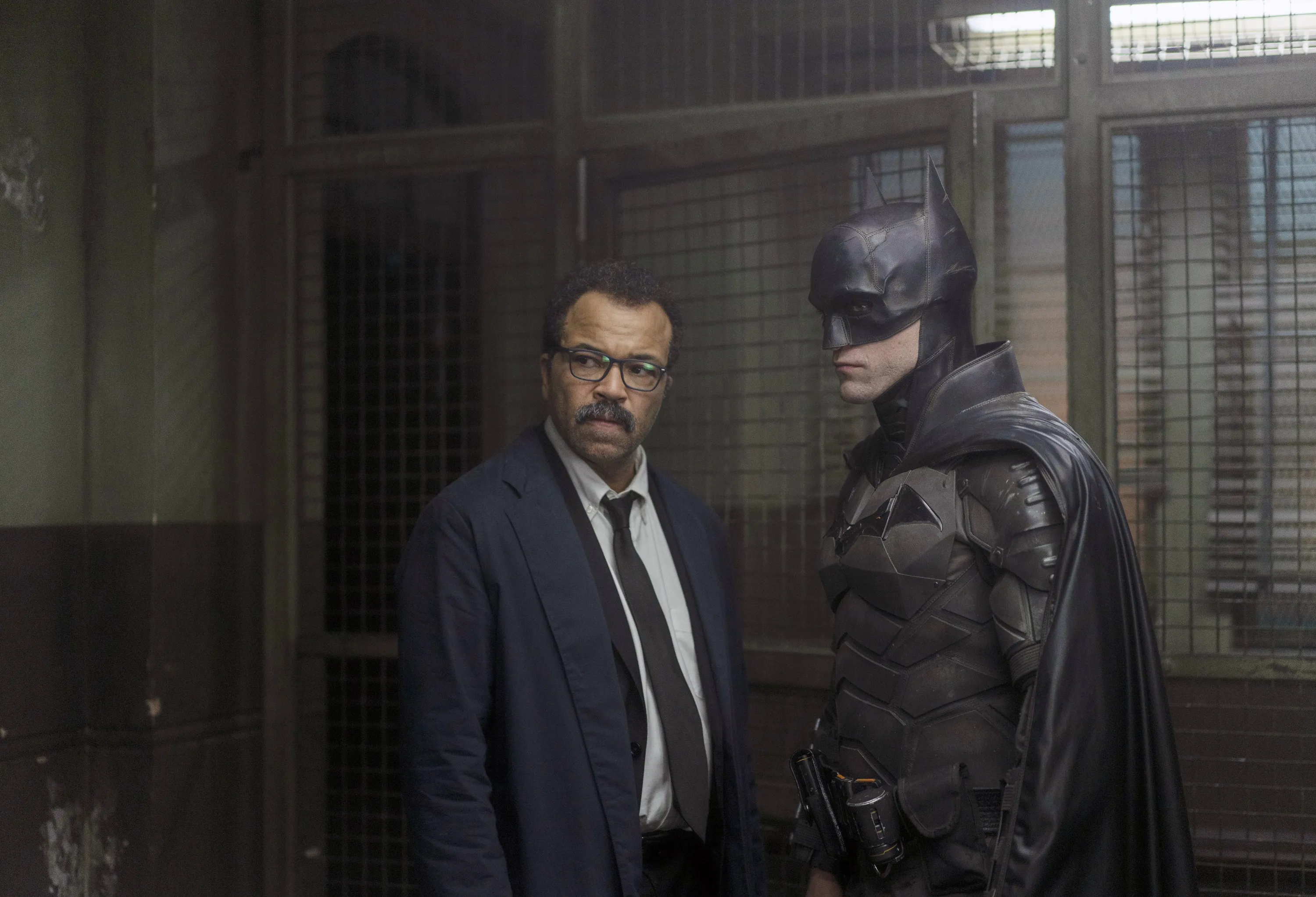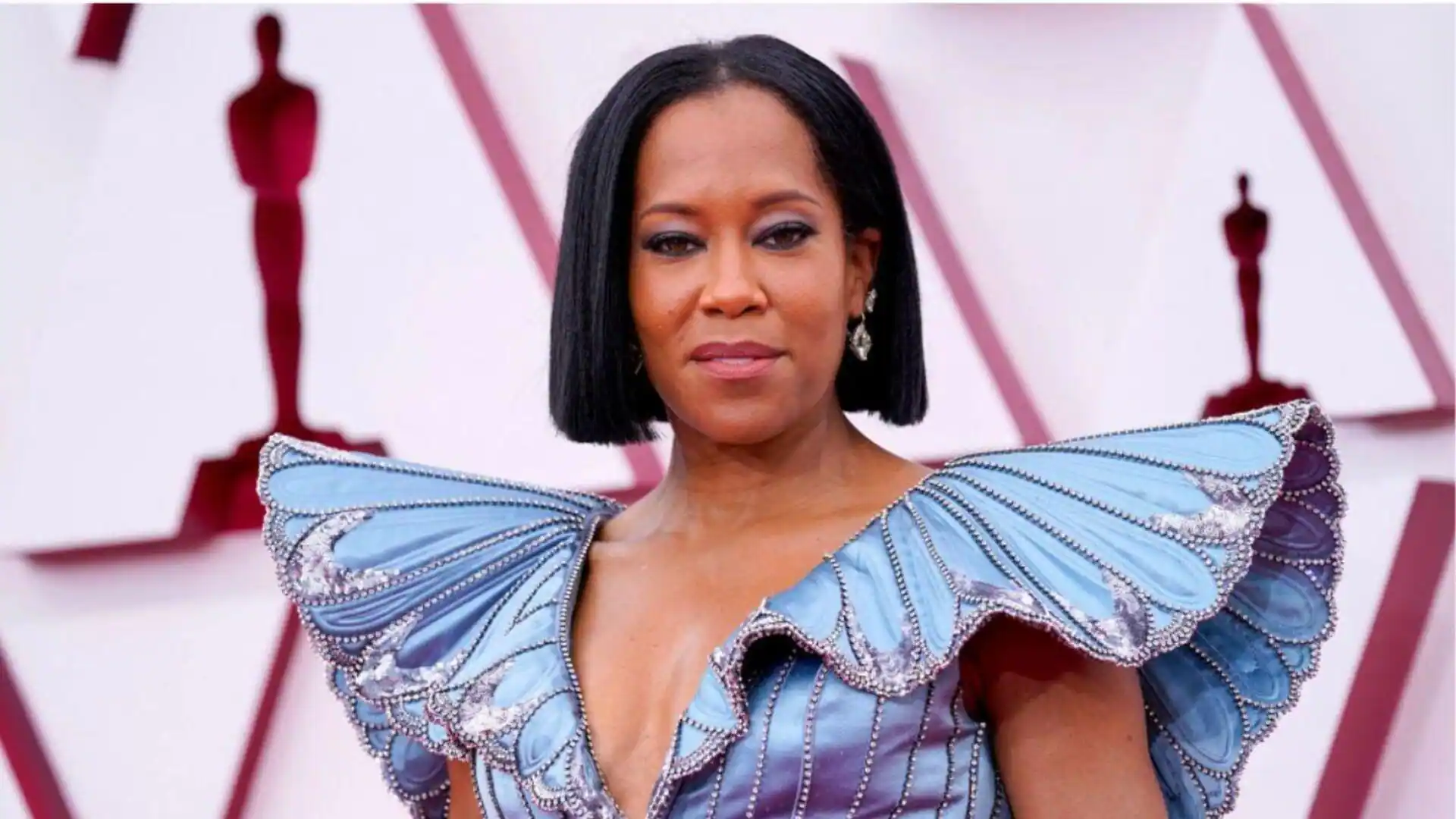By Alex Pappademas
Copyright gq

This story contains spoilers for Peacemaker season two episode five, “Back to the Suture.”
Another bleak Wednesday morning in a world gone mad, and the first person to speak a kind word to me all day is John Cena. He asks how it’s going, I say “Good enough,” and he says “I hope that makes its way into some improvement, but I’ll take ‘good enough.’” Suddenly I feel like John Cena, through the phone, has placed a hand on my shoulder. I feel steadied.
Some years ago, director James Gunn cast Cena as Christopher Smith, the B-minus-list DC Comics vigilante known as Peacemaker, in his film The Suicide Squad, released in 2021. Smith, written as a jingoistic psycho, was supposed to die in the third act after killing another Suicide Squad team member; before the film was finished, Gunn had changed his mind about the character’s fate. He spared Smith in a post-credits scene and began writing the first season of the Peacemaker TV series, in which Cena’s character grapples with unprocessed origin-story trauma and guilt while working with a group of misfit government agents to repel an alien invasion. Comic-book trappings aside, it was a profane workplace comedy with an eccentrically cheesy ‘80s hair-metal soundtrack; like a lot of Gunn’s work for Marvel as well as DC, it seemed to sit apart, tonally, from the big-ticket superhero IP with which it nominally shared a fictional universe. And in the course of eight episodes, Cena took a dollar-bin hero with a nonsensical gimmick (he wants world peace, so much so that he’ll kill anyone who imperils it) and an even-sillier costume and imbued him with real dimension—the pathos of an ornery galoot finding the courage to accept love. It’s some of the best work the WWE legend has done in almost twenty years of acting.
In the long gap between the first season of Peacemaker and the second now in progress, of course, Gunn and his longtime producing partner Peter Safran became co-CEOs of DC Studios, and Gunn directed Superman, in which Cena’s Peacemaker makes a cameo as a talk-show guest addressing the DCU’s metahuman problem. Gunn has said that Peacemaker’s second season will tie directly into Man of Tomorrow, his follow-up to Superman; we don’t yet know precisely how. So far this season, after meeting and accidentally killing his doppelganger from an alternate Earth, Chris has started visiting that variant’s world and impersonating him, living out what he perceives as a better life; at the end of tonight’s pivotal episode, with his troubles mounting, Smith decides to escape his own world and live in that universe full-time.
I spoke with Cena on the phone a few weeks ago about tonight’s big twist, the real-life experiences he draws on in playing Chris Smith, and what, if anything, we should make of that widely-circulated photo of him and Superman’s David Corenswet hanging out in costume.
GQ: This interview will go live right after episode five of Peacemaker comes out. The end of that episode, when Chris walks through the doorway and leaves his world behind, is obviously a huge turn for this season. They won’t show me episode six. I asked a couple of times. I’ve rarely gotten a harder “no.”
John Cena: Unfortunately I can’t help you there. When the boss wants to protect something, it stays protected.
It’s interesting to track Chris from the first episode of the season to this one. In the season premiere we saw him being rejected by the superhero establishment, when he auditions for the Justice Gang and kind of gets laughed out of the room. And then he starts abusing substances and acting out sexually and all of that.
And at the end of this week, he’s gotten everything he wants, albeit in this parallel world. He’s accepted as a hero, he’s got his brother and his father back, he has a chance at love with the alternate-universe version of Harcourt. But he has all these things because he’s impersonating someone. Everything he has is tainted, I would argue, by the way he’s gone about getting it.
A truly interesting perspective. Step one, I never want to tell the audience how to feel. If James Gunn says, “I wrote this with this intention in mind.” That’s one thing.
But I hate—it’s just a personal thing of mine—I hate when performers dictate how the audience can feel. And I think that’s deeply rooted in my subconscious from WWE because you can’t control your audience. You can control how you react to your audience. And I’ve always tried to pride myself on being accepting of everybody’s view.
I take a lot away from the show of, “Hey, if something doesn’t go our way what do we normally do?” We go to comfort. And in Chris Smith’s zone, comfort is an orgy with a bunch of narcotics and a bunch of booze. And then we have a situation where, okay, when things don’t go our way and comfort doesn’t work, essentially, what do we seek? And again, this is just my perspective on how I prepare for what I’m about to do. You begin to think the grass is greener on the other side, and you look to your neighbor in some cases, or a friend, or an inspirational figure on social media and say, “If I only had these things I’d be happy.”
And then if the situation snowballs enough, you might be in a situation where you get those things. And a lot of times when you get the if-onlys, it just leads to another if-only. I love talking about this stuff, because this is less Peacemaker and more deep life philosophy. “I’ll be happy when I get this done. I will be happy when I can move into this house. I’ll be happy when this [or that happens].” Rather than starting with internal self-love and happiness and go out from there.
I love Danielle Brooks’ character. Adebayo especially is the flip side of Chris’s coin of, “Grass is greener over here, everything’s better over here. I’ll only be happy if…” And then the wise words of Adebayo: “Look, you’re right where you need to be. You need to start being happy and then understand that life is a gift.” I mean, those are things that I think about every day.
That’s like, life-philosophy stuff. Which is why when I asked about how your day’s going—and I mean from the little I could get from your response—you might’ve been starting out on rocky waters and hopefully things are going to get better. Well, man, I’m rooting for you to have a better day. No bullshit. Because we’re awake, we’re alive. Hopefully we have our faculties and health about us. And you could always be worse. It doesn’t mean you can’t feel a certain way and have all the feelings that human beings are supposed to have. But if we can just find a way to traverse our problems and climb our hills and still be genuinely okay with who we are, I think that’s a real good, strong foundation for happiness in this life as we have it.
Chris Smith in season two of Peacemaker to me, from my perspective—and again, I don’t want to tell the audience how to feel—but it is the human journey of, “I [stepped] out of my comfort zone and I failed. I go to comfort, immediate comfort. I go to extremes. I go to booze, I go to drugs, I go to sex, I go to binge eating, I go to shopping,” whatever it is. That’s kind of where we go when things go south: “Let me be comfortable as soon as I can.” When comfort doesn’t fix [things] anymore, well, what do we do next? I look at other people’s lives and I shout that mine isn’t like that. “If I only had their life, I would be fine.”
And then if you get their life, you are only going to realize that, man, like you said,, that’s not how you do it. So I don’t know if there’s a perfect way to do it, and we all have our own virtues and our own integrity, so I don’t want to tell anybody there’s a way to do it. We have agreed-upon global morality, but however you get to your happy place is fine. If you’re always chasing a thing, you’re just going to keep chasing a thing.
And boy, that was—man, we got deep real quick there. So sorry about that.
No, I love it. Did you have to learn that the hard way in your own life? Was there a time when you, John Cena, were like, “If I just lived in that house, if I could just get that part, everything will be cool?”
I think—and again, I’m just living in my own body, looking through my own lens, but that’s the living of life. Some people come to that realization earlier, some people never get there. From my perspective, it took me basically coming to, like, “Hey, I’m enough, and there’s going to be failures and bumps along the way.” But as long as you define the core values in life, as long as you start by defining what is happiness, in general terms and be grateful that you’re alive and that, hell, we can shoot the for a little bit today. We’re literally talking about a show where I play dress-up and live in an alternate universe. This is all really good stuff.
But I think from my experience, everybody has to learn that. That is the living of life. We have to learn [that]—oftentimes you don’t just read it in a textbook. Delayed gratification for long-term payout. You put aside the bad nutritional choice to work out to look a certain way, or you save a little bit of money instead of spending it so you have enough for a rainy day. These are lessons you live and learn in the trenches of life.
So if you’re asking me did I have to live to figure that out? I sure did. And a lot of what we figured out, a lot of the lasting lessons that we have in life, at least for me, are through failure, through me spending too much early on in my WWE days. Going to quick comfort. Not being as open and vulnerable with people I said that I loved, but really I was just trying to preserve self above all else and not letting anyone into my life.
I mean, there’s a bunch of stuff. So I guess that’s why I love James’s material so much. I think he might’ve gotten into my mental journal and kind of wrote season two out of my brain. But yes, at least from my own lifetime, thus far, I’ve learned the lessons I’ve learned by living. Certainly by absorbing information and hopefully being privy enough to be a sponge and be coachable and knowing that when the facts change, you should change your mind and that’s okay. You shouldn’t be the same person you were yesterday. You should hopefully always be in that growth mindset and want to stay curious and active about life, but you do have to live life. I don’t think all the answers are within the pages of the book. You can’t just read the instruction manual and then expect to have it figured out. You do have to essentially turn the device on, let it function, and when it fizzles out a few times, you’ve got to fix it.
You mentioned feeling James pulled stuff from your brain in writing this season. He recently revealed that when he was making The Suicide Squad, he initially had Dave Bautista in mind for Peacemaker. Now that you’ve played this part for Gunn in a movie and across two seasons of TV, how do you think you and James have tailored the character to you and your strengths, and maybe even who you are?
Well, I mean, first of all, I could care less about being anybody’s first, second, third or fourth pick. Opportunity in life comes to you in a myriad of different ways, and if I wanted to be salty about like, “Oh, I wasn’t first pick, that’s beneath me.” I wouldn’t have ever gotten a chance. And keep in mind I got killed off in The Suicide Squad.
Right. You’re already on your second chance, yeah.
Yeah. So, I mean, in filming that movie with James, we developed a friendship and I think I checked a lot of boxes of people he likes to work with professionally. And on top of that, we developed a relationship personally and we do stay in a lot of the same lanes. And again, man, when I get an opportunity, I want to make the people who bet on me proud, and I don’t bat a thousand at that. But at least if I try, then I put myself in a better standing.
And man, I think he got to know me. And we’re all peculiar, right? We’re human, we all snap judge everybody. And I’ve been coming into people’s living rooms 52 weeks a year for 23 years as a wrestler, so it’s very easy to think that I will show up in shorts and be overly eccentric and speak in a loud voice and demand a cage match. Really turning the volume to eleven on the stereotype scale.
But I think what was interesting to James when he got to know me as a human being—it’s like the first six minutes of our conversation, where I’m talking to you about like, “Oh, okay, in my experience, these are my human breakdowns. When we fail in life, we go to comfort. When comfort fails us, we go to envy. When envy fails us…” Being able to sit down and have those discussions, with someone who writes stories and develops characters, we now have an open canvas about, “Hey, there’s a lot more to this guy.”
I think he saw nuance in the performance he was able to bring out of me. “There’s more to this guy. And as a storyteller and as someone who puts words on paper and wants to bring those words to life and be prolific and have depth, I think this guy can help me out and I’d like to try to work with him again.” So that’s why I ended up in the hospital instead of the morgue.
Would you say Chris Smith is the best part anybody’s ever written for you? Because I might.
I don’t mind when people say that. It strikes a parallel to, like, “This is Cena’s best opponent,” or “This is the best match team you ever had.” It essentially doesn’t mean I’m not going to give more performances.
What I love and what I’ve learned to love is, gosh, it is great to have an audience remember your body of work and be able to point out a “best.” Because that means, one, they saw your growth. Two, that means they saw a few things, which means they’re watching what you’re doing. And three, at least one moment in your time of performing for an audience, you held their attention and made them feel something. And that is the goal of all of us as performers.
Again, I don’t want to curate the audience and tell them like, “This is how you have to feel.” What I receive when you say, “Hey, I think this is your best role,” that means you’ve watched some other stuff, which I’m grateful for, and that means that this thing in particular moved you in a certain way and made you feel something. And that is the biggest award. There’s not a statue, there’s not any sort of award ceremony, being recognized by your peers, that is the standard that will allow me to keep doing what I love. Man, I love hearing that.
And I try to embrace Peacemaker as I do all my other parts. I talk about it often: I was kind of run out of Hollywood for being invested for the wrong reasons, purely economical, and just try to bring audiences back to wrestling. And then I was fortunate enough to be given a second chance by some really smart folks and some really funny folks and just went all in. And I finally convinced myself, like, “Hey, if you just put the amount of time you put into wrestling into this, at least you can walk away from these things saying, I have nothing else to give at all. Now, you may not like it—but that is my all.”
And ever since I’ve adopted that philosophy, everyone has had an opinion about [my] performances, and this is from Trainwreck on, I would say. There’s little pockets in there of people that will come and be like, “Man, I love you in Trainwreck.” Or “You were great in Sisters.” Or “We watch Daddy’s Home every Christmas.” Or “Transformers was crazy.” These little moments in time.
I will say that by and large, I think a lot of the audience that I am able to meet and converse with shares your opinion. Like, “Man, Peacemaker, you kind of brought it all together for that.” And I attribute that to many things. I attribute that to obviously being the brainchild of James. He’s a very prolific writer and I think it is apparent now that he’s writing to his directorial skills and his ability to bring the most out of the talent. And then obviously our talent in front of him, behind the camera. Our cast is fucking incredible. We are, that season one group, the 11th Street Kids, we are a band of lovable misfits who never should be, and we all got a chance to bring it.
We’ve all had our success, we’ve all had our chances, but I think this, Peacemaker, was the biggest chance for a whole lot of us, [myself] included, to really show what we have, who we are, what we can do.
How much do you find yourself drawing on your own experiences in some of these moments? I think about that Justice Gang interview scene, where they’re not taking Chris seriously and he’s humiliated. That felt real to me. Did you ever have that feeling when you were moving from wrestling into acting, where you felt like people in decision-making positions weren’t looking at you the way you wanted to be seen, and did that inform how you played that moment?
Yeah. I hate making blanket statements that begin with “everybody,” but I think a majority of us have felt that. The entertainment business is filled with auditions. People have to go on job interviews, you apply to universities, whatever, you want to get into a program or a club. The people holding your acceptance into these opportunities in the balance a lot of times only have a few moments to make a choice. And they have to make a choice [based] on what information they have.
And man, it sucks to say not only that you didn’t make the team but, “Wow, you are the worst example and you’re the farthest from this that we could expect.” And again, this has been a superhero setting, so it’s like, “Oh man, have you ever felt like that?” But I think a lot of us have. Any time you try something out of your comfort zone, any time you try to show somebody a trait or an aspect of yourself that they’re not familiar with, you run the risk of them saying, I don’t like you for that, or I don’t think that’s the way it should be, or This is going to be too tough for you. It’s not a fit. You should try something else.”
And that’s why it seemed real to you—because, man, that’s happened to me a bunch of times. But I also think it’s happened to a lot of folks and my theory is that might help it feel real to you because you may know [that feeling] yourself. Like, “Man, these motherfuckers judged me and they don’t know the whole me. I could do this”—but you didn’t get it. Whatever the opportunity was, you were rejected.
A lot of these [moments in the show] are moments of such normalcy when you strip away the [context]. Like, “Oh, man, have you ever been rejected in your life?” Fuck yes, I have. And I hope I continue to be rejected. I’ve learned through the years to handle rejection with a little bit more empathy. But Chris Smith isn’t in an emotionally fully developed mind and he’s not advanced enough to look at rejection with empathy. And of course he was put in a situation where he can hear people shit-talking to him, which ironically is what he would do to everyone else.
It’s a beautiful scenario too, from my perspective. The shoe’s on the other foot. Dude, this is how it feels, man. There’s a lot going on there. But again, I love how James takes human, common, communal experiences and throws them into these … We can have a guy who’s an alien burning this sewer rat in a furnace and not know what it’s about. But at the same time, [that] can be next to a moment that, okay, the underlying theme from my lens is you want to develop a sense of community with your neighbors and they won’t pay any time of day.
Right, yeah. He just wants to be friendly with this alien, or he wants to be accepted, and then there’s this embarrassment that comes with putting yourself out there.
Yeah. And the reason he overreacts is because no one will give him the time of day. The alien doesn’t know him and is trepidatious and all that other stuff. But he blows up on the alien because he wants to be accepted. Like, Damn it, what’s the problem? Those are normal human circumstances and I think that’s why the show casts such a wide net, in my mind. There’s this weird underlying sense of normal to it, and I appreciate that a lot.
So what can you say about what lies ahead for this show? There’s a photo out there of you and David Corenswet, in costume, just hanging out on set. People are making a lot of assumptions online based on that, about what might happen in the last three episodes of the season. Do you want to stoke that fire?
Well, I won’t bury the lead, you’re talking to the wrong guy because, man, I could write my own story of where I think it’s going and all that does is set up expectations that might not be met. And that’s just not something that I do in life. I can tell you the story behind David and I, and that photo where I’m dressed as Peacemaker, is I knew that they were finishing up filming Superman and I desperately wanted to meet David. I wanted to meet the new Superman and just lend my services, like, “Hey, man, your life is about to change and I’ve heard that you’ve been doing an incredible job. I want to thank you because if you suck, that means DC sucks, which means we got a bigger hole to dig out of. So thank you so much for giving this your all. As someone who has been far more exposed to the media than I have formal acting training, if I can help you in any way, please, here’s my number, let me know.”
And David couldn’t have been nicer. He’s an absolute class act, and James couldn’t have made a better choice. I’m so glad everything went well [with Superman], because he had earned that. I don’t use the word “deserve.” He has absolutely earned whatever success and future opportunities he’s been given. I really wanted to meet Superman and offer my help and services in any way. And David is Superman. That’s not something you take lightly. Peacemaker is a new guy, [or] an unknown character coming from the annals of wherever. James himself was like, “Don’t read the comic. I’m going to make this guy my own.” So, completely clean slate. But there are names in the superhero realm where you just can’t fake it. They have a weight of importance before you even say your first word, and Superman is certainly one of those. So I really just want to meet Superman.
You didn’t say anything about the future. That’s a pro answer right there.
No. It’s an honest answer. And you as a journalist, you’re allowed to and you should ask all the questions you want because, man, you’re trying to do your homework. But one, if I did know anything, I would want to keep it secret just because, again, spoilers and reading stuff is fun for our audience, but it’s momentarily fun. I think those lasting impactful moments are the moments you can make them feel something while you do what you do. And again, that’s something else I’ve learned from WWE. I’m one of the few names that’s always correlated with like, “Oh, man, he surprised us this time,” because I just don’t say anything to anybody.
But secondly, and most importantly, I don’t know because I don’t write this stuff. And quite frankly, if I were to give you something right now, it might piss James off and he’ll write something else.
So I think that James is a great guy to ask for that because he is the boss. Man, he’s at the helm of our creative. I would never tell you what’s next for the John Cena character. I would kick you to Triple H, our head of creative for WWE, because that’s his job. He depicts who we face, what we do, and it’s my job as a performer to do the best I can with all that stuff.
I didn’t expect we’d be talking this much about wrestling.
I feel bad correlating everything back to it, but that’s where I have my 10,000 hours, and I’m now learning that the two disciplines are so much more similar than they are foreign.
When you’re making superhero stuff, you’re dealing with a very opinionated audience that pays a lot of attention to stories and details—people who are constantly talking amongst themselves about what’s going to happen. How do you think your years of experience making stuff for the WWE audience has prepared you for this?
That’s a great question. And I think, yeah, it does. So it’s not superhero role specific, it’s not even professional specific, it is life specific. What I have learned from the WWE audience stretches far beyond professional capacity. I guess the core message that I can strip away to answer this question is good work begets opportunity. Do good work. Put your heart and soul into good work.
Now, a critic’s job is to be critical. There will always be something to criticize. Always. Even if it’s like, “I don’t like the gait of his stride.” There’s always something to criticize. But if you do good work, even those who are the most critical, I think, appreciate the fact that, “Man, I think he gave it his all, but this is where I think it fell short.”
And that is a lesson I have absolutely learned from WWE because we have our general fan, we have our ignorant fan, we have people that are our detractors, and then we have a more serious fan, and then we have the uber-dedicated fan, and then we dive into the critical fan and then the rest of the critics—there’s so many levels of what goes on. It’s impossible to please everybody because our demo spreads all over the place. It’s global, it really is everyone. You can’t please everyone. That’s why it’s an action story-based variety show. We have a bunch of characters and hopefully one of them floats your boat or hopefully you want to yell at one of them and that will keep you tuned in.
But I think at the end of the day, just focusing on the work, trying not to use it as a springboard to do anything else or like, “Man, this is an opportunity and I can maybe do this” or whatever—I see a lot of that happen in every aspect of professionalism that I’ve been in close calls with. I think for me, just focusing on the work, me giving you the 37 minutes and 20 seconds we have right now to not be elsewhere, to focus on the work and try to answer your questions in the best frame of mind that I can. I’m not thinking about what’s next. I’m thinking about what’s now.
And I believe that that is the lesson, from a professional standpoint that WWE and its audiences have helped me with so much. Because you can over-prepare, which I try to pride myself in, but when you get out on the canvas, it is live and you cannot control one very important element of the performance and that is the audience. And if you are not present, then you’re a liar. But if you are present, they accept that even if you work isn’t the best, they can still walk away from the experience being like, “Damn, you put your heart on a plate and you gave us a great time.”
I needed this conversation to go the way it has today. More than I realized. So, thank you.
I don’t know if that’s good, bad, or indifferent, but I’ll take it.



